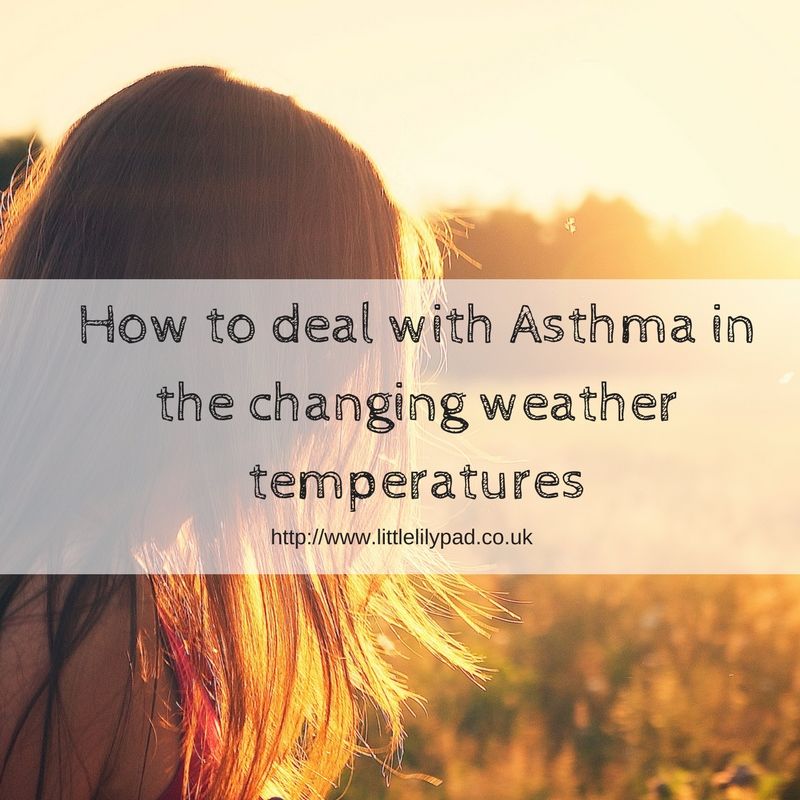How to deal with Asthma in the changing weather temperatures
Posted on
Asthma can be hard work at any time of the year for sufferers but the changing weather of late can make it all the more difficult. We have had some really cold snaps and the cold, dry air can be painful on the lungs and make doing the simplest task outside more arduous. Aside from the cold, dry air is the other big problem for asthma sufferers at this time of year as is the high number of respiratory and sinus infections that hang around. Nearly every child in my daughters school has a cold at the moment, meaning avoiding those bugs can be hard work.
Most asthma sufferers, are eligible for a flu shot and this is another good measure to reduce the risk of getting those cold and flu bugs. It also helps that if you do get the flu, the conditions won’t be quite as severe as they would be without the jab.

Combatting the cold
It would be nice to say don’t go out in the cold during winter but this doesn’t always solve all the problems. However, when you are outside, try to avoid opening your mouth. This is because when you open your mouth, the cold air is sucked straight into your lungs and causes the asthma to flare up. If you are going to be chatting while outside, wear a scarf or a muffler over your nose and mouth to reduce the impact of the cold.
How to manage your asthma on warmer days
The weather has been beautiful in the UK for the past few days but with increased temperatures there is also an increased risk of having an asthma attack for the 1 in 11 people in the UK who have asthma. There is a theory that warm weather can increase the amount of pollutants and mould in the air - both of which can trigger asthma symptoms
It is great to encourage children to play in the fresh air, if a child wants to play outside, it is good to let them but try to plan any outdoor activities for earlier in the day when the air quality tends to be better.
Have an asthma plan
All asthma sufferers should have a plan to deal with an asthma attack and for children, this plan should be discussed with teachers and child-minders. It involves knowing what to do if there is an attack, what medication is needed and at what point help must be sought. Medication should also be taken any time before you go outside to help the change in air temperature – around 30 minutes beforehand is ideal if possible.
Conclusion
The cold, damp weather, thunderstorms, really hot weather and a sudden change in temperature can trigger symptoms for some people so while we welcome the sunshine at the moment, we need to ensure that it is not triggering asthma symptoms for the little one.
In the meantime, we are continuing to show our support for Asthma UK which has been an invaluable resource to us and we are planning on trying to organise an Big Asthma Bake Sale for World Asthma Day on the 2nd May 2017. So, anyone for cake??

 |

Tweet








